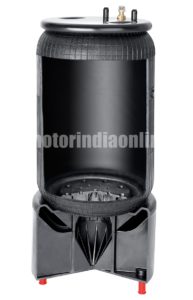With its innovations for commercial vehicles, international technology company Continental can achieve fuel savings of up to six litres per 100 km. This value is a result of the systematic implementation of all the technologies available during series production and development.

“We envisage great potential for future optimization in fleet consumption. Our innovations, some of which are currently in the design phase and some of which are undergoing preliminary development, offer additional potential for reducing consumption by as much as two liters per hundred kilometers,” explains Nikolai Setzer, who is a member of the Continental Executive Board.
This calculation takes account of more than 20 different technologies that either have recently been implemented in series production or are currently undergoing development. Continental is thereby improving the efficiency of commercial vehicles, cutting CO2 emissions and improving the cost efficiency of goods transportation.
Some of the latest solutions, including reduced weight air springs, fuel-saving tires and a smaller diesel oxidation catalyst, will be on display at this year’s International Motor Show Commercial Vehicles. The company will be showcasing a diverse, technologically sophisticated, single-source portfolio to attending manufacturers, forwarding agents and fleet managers.
In addition to the latest innovations, visitors will be able to see other more familiar Continental technology such as the eHorizon sensor system, which saves almost one liter of fuel over 100 km, and the ProViu Mirror digital side mirror set that can help save up to 0.6 litres of fuel.
In 2007, the member-States of the European Union agreed to reduce primary energy consumption by 20 per cent by 2020. Consequently, vehicle manufacturers have an interest in continuing to lower CO2 emissions.
Innovations developed by Continental such as lightweight technologies and efficient exhaust-gas after treatment solutions can help meet this challenge. Fewer emissions, lower consumption, falling operating costs, increasing payloads, and stricter emissions regulations or exhaust standards such as EURO 6 are therefore constantly driving the development of innovations.
Lightweight plastic replaces steel and aluminum
Modern commercial vehicles and buses are subject to exacting demands when it comes to efficiency. To improve the efficiency and cost-effectiveness of goods transportation, payload capacity is to be increased in compliance with the statutory limits on axle loads. Reducing the weight is not just about reducing fuel consumption and, in turn, decreasing operating costs, but also brings other advantages too: For example, with the weight-reducing air spring family from Continental, forwarding agents can gain 12-15 kg of payload capacity per axle. With a service life of 400,000 km, CO2 emissions drop by 200 kg as a result. In comparison with conventional steel pistons, this means as much as 75% less weight thanks to the use of a special plastic.
